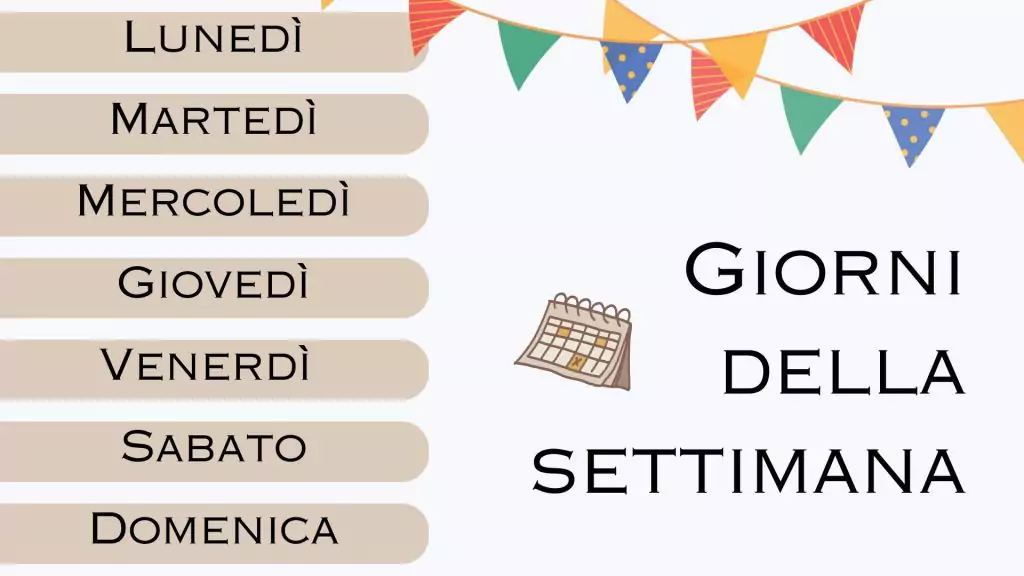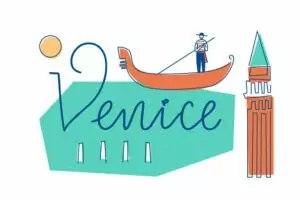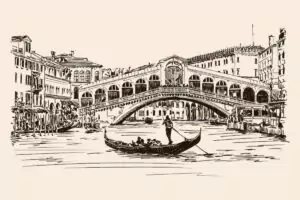Learning the days of the week in Italian is essential for travelers planning to explore Italy. Whether you’re scheduling trips, making appointments, or simply engaging in everyday conversations, mastering these Italian words will prove incredibly useful. In this guide, we’ll cover the names of the days, their pronunciation, English translations, and how to use them in real-life sentences.

✅ AI Essay Writer ✅ AI Detector ✅ Plagchecker ✅ Paraphraser
✅ Summarizer ✅ Citation Generator

Italian Days of the Week: The Basics
Let’s start with the basics of the Italian days of the week. Here are the seven days, along with their pronunciation and English translations:
Lunedì
Lunedì (loo-neh-dee) – Monday
Example: Il lunedì vado in palestra. (On Mondays, I go to the gym.)
Translation: Monday, originating from the Latin “Lunae dies” which means “day of the moon.”
Martedì
Martedì (mar-teh-dee) – Tuesday
Example: Arriverò martedì prossimo. (I will arrive next Tuesday.)
Translation: Tuesday, derived from the Latin word “Martis dies,” meaning “Mars day.”
Mercoledì
Mercoledì (mer-co-leh-dee) – Wednesday
Example: Il mercoledì vado a lezione di italiano. (On Wednesdays, I go to Italian class.)
Translation: Wednesday, dedicated to the god Mercury, from Latin “Mercŭrī dies.”
Giovedì
Giovedì (jo-veh-dee) – Thursday
Example: Il prossimo giovedì devo andare dal dentista. (Next Thursday, I have to go to the dentist.)
Translation: Thursday, containing the Italian name of the god Jupiter: Giove. From Latin “Iovis dies.”
Venerdì
Venerdì (veh-neh-dee) – Friday
Example: Mi piace uscire con le amiche il venerdì. (I like to go out with friends on Fridays.)
Translation: Friday, the last day with a name originating from a planet – Venus (“Venĕris dies” in Latin).
Sabato
Sabato (sah-bah-to) – Saturday
Example: Sabato è il giorno della settimana che preferisco. (Saturday is my favorite day of the week.)
Translation: Saturday, originally Saturn’s day (“Saturni dies” in Latin), also known as “day of rest.”
Domenica
Domenica (doh-meh-nee-ca) – Sunday
Example: La domenica è dedicata al relax. (Sunday is dedicated to rest.)
Translation: Sunday, introduced by the Roman emperor Constantine, originating from “dominĭca,” meaning “day of the Lord.”
How to Use the Days of the Week in Italian Sentences
Now that you know the names and meanings of the days, let’s explore how to use them in real sentences.
Rule #1
When talking about activities on specific days, use the definite article “il” for masculine days and “la” for feminine “Domenica”:
Vado al cinema il giovedì. (I go to the cinema on Thursdays.)
La domenica mi rilasso a casa. (On Sundays, I relax at home.)
Rule #2
To express recurring actions, you can use the preposition “di”:
Di lunedì vado sempre al mercato. (On Mondays, I always go to the market.)
Rule #3
Use the indefinite article “un” or “una” to refer to any day of the week:
Potremmo vederci una domenica. (We could meet one Sunday.)
Rule #4
Furthermore, it’s important to remember that Italian days of the week are generally not capitalized unless they appear at the beginning of a sentence.
Il lunedí vado a scuola. (On Mondays, I go to school.)
Rule #5
Also, when asking questions about specific days, you can use the phrase “Che giorno…?” or “Qual giorno…?” For example:
Che giorno è oggi? (What day is today?)
Qual giorno è la festa? (What day is the party?)
Rule #6
When communicating about past or future days, you can use expressions such as “ieri” (yesterday), “oggi” (today), and “domani” (tomorrow). For instance:
Domani è giovedì. (Tomorrow is Thursday.)
Non posso venire martedì mattina. (I can’t come on Tuesday morning.)
As you become more familiar with using the Italian days of the week, you’ll find it easier to plan and engage in conversations about schedules, making your interactions in Italy more enjoyable and seamless. Remember to practice using the days in different contexts and with various verbs to reinforce your understanding. Buona fortuna! (Good luck!)
FAQ
How can I memorise Italian days of the week quickly?
You can use tricks like associating them with English words, planets, or gods. Practice regularly and use flashcards.
How can I enhance my Italian language learning process?
Immerse yourself in the language by watching Italian movies, listening to Italian music, and practicing with native speakers.
Are the Italian days of the week masculine or feminine, and which one is an exception?
Italian days of the week are generally masculine, except for “la domenica” (Sunday), which is feminine.
How can I differentiate between using Italian days in the singular and plural form?
Add “il” before the day for singular and “i” before the day for plural. Example: “il lunedì” (Monday) and “i lunedì” (Mondays).
What is the significance of “giovedì” being named after Jupiter, and how can I remember it?
“Giovedì” is named after Jupiter, the Roman god. You can remember it by connecting it with the expression “by Jove” in English.
What is the origin of the Italian names for the days of the week?
Most Italian days were named after planets and Roman gods, while “sabato” comes from the Latin sabbatum, related to the Jewish Sabbath, and “domenica” originates from the Latin word for God, “dominus.”
Follow us on Reddit for more insights and updates.





Comments (0)
Welcome to A*Help comments!
We’re all about debate and discussion at A*Help.
We value the diverse opinions of users, so you may find points of view that you don’t agree with. And that’s cool. However, there are certain things we’re not OK with: attempts to manipulate our data in any way, for example, or the posting of discriminative, offensive, hateful, or disparaging material.